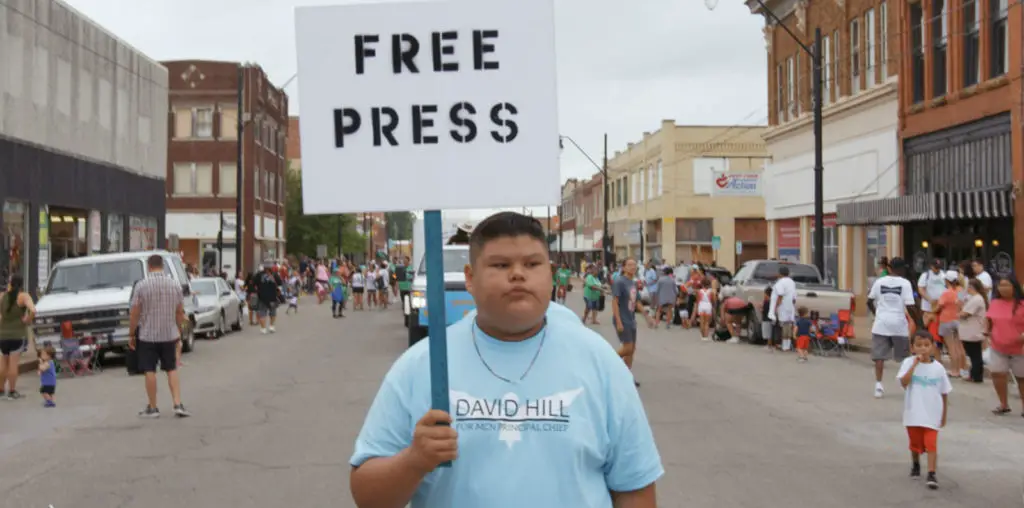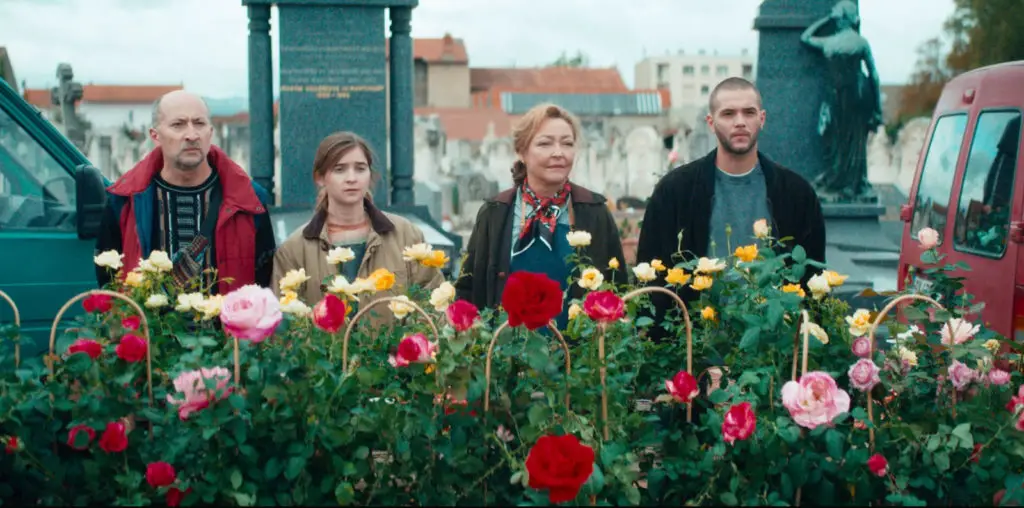
Stephen J. Szklarski’s documentary “Union Square” is raw, brutal, hypnotic journey into the world of seven heroin addicts who barely survive on the streets of New York City. It is a film of great sadness and pain, as the seven people casually detail the manner in which they destroyed their respective lives in pursuit of the heroin high. It is difficult to imagine a more gut-wrenching experience.
Union Square is a section of New York which is home to a pleasant park and a collection of popular stores and restaurants. A farmer’s market sets up shop there several times a week and the warm weather brings out scores of sunbathers who take advantage of the park’s well-manicured lawn. On the fringes of this area, however, are a scattering homeless people who seem to live curled up on the sidewalks and subway stations, their bodies hidden behind crude cardboard signs asking for money. When panhandling doesn’t bring in enough cash, prostitution and petty crime fill their wallets. Whatever funds are raised go immediately to the purchase of heroin, which is immediately administered in filthy public lavatories.
The heroin chase has wrecked the lives of the “Union Square” subjects with brutal efficiency. Danny, whose face is wrapped with a large bandage covering his left eye, stole from his friends and family to support his fix. His wife eventually walked out on him and took their small children. Cheyenne, the only woman in the mix, was herself taken from her drug-addicted parents when she was six. Her heroin addiction robbed her of a job, home and, ironically, her own six-year-old daughter. Mike, who spends his time with Cheyenne, graduated from heroin after cocaine lost its effectiveness. James and Mark have floated in and out of prisons, always gravitating back to the needle. Stealth, a California native sporting an excess of body piercing metal, claims to have lived on the streets since he was nine and knows of no other way to exist. Ron is a heterosexual who supports his habit in large part by giving oral sex to a local middle-aged man who pays $40 per blow.
The true tragedy of “Union Square” comes in the articulate and cogent manner in which the film’s subjects relate their respective fates. All of them seem to be somewhere in their twenties or early thirties and each is blessed with the ability to speak in a clear, concise manner which betrays a high sense of intelligence that somehow got short-circuited. Nobody here blames outside forces for their own problems — everyone acknowledges the self-destructive nature of the behavior. The fact these are not stupid people behaving stupidly, but rather smart people who’ve willingly imprisoned themselves into lives of squalor and misery, makes “Union Square” a heartbreaking film to endure.
The film’s rough language and close-up focus on the preparation and injection of heroin may turn off some audiences. But in its harsh honesty, “Union Square” presents one of the most chilling and accurate pictures of drug addiction in modern America. This is one of the year’s best documentaries.

